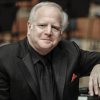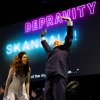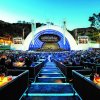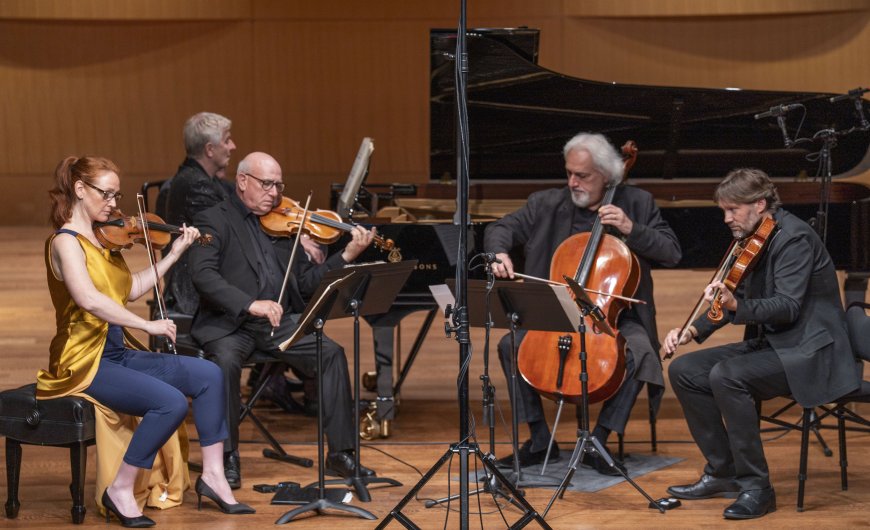
It was a family affair at the opening concert of the New Hollywood String Quartet’s Summer of Angels Chamber Music Festival on Thursday, July 10, in San Marino.
A direct descendent of the celebrated Hollywood String Quartet, the NHSQ was celebrating its own 25th anniversary with a heartfelt performance of music by the late-Romantic troika of Hugo Wolf, Alexander Borodin, and César Franck. All three works — two quartets and a piano quintet, the last with Jean-Yves Thibaudet at the keyboard — were recorded decades ago by the HSQ on a legendary series released by Capitol Records. The festival included three more concerts over the weekend at The Huntington’s Rothenberg Hall.
String quartets and Hollywood might seem to be an odd pairing, like caviar and hot dogs. Intimate, introverted, and cerebral, chamber music inhabits a rarefied world remote from the populist ethos of the movie industry. This was even more true in 1939, at the height of film studios’ golden age, when the HSQ was born.
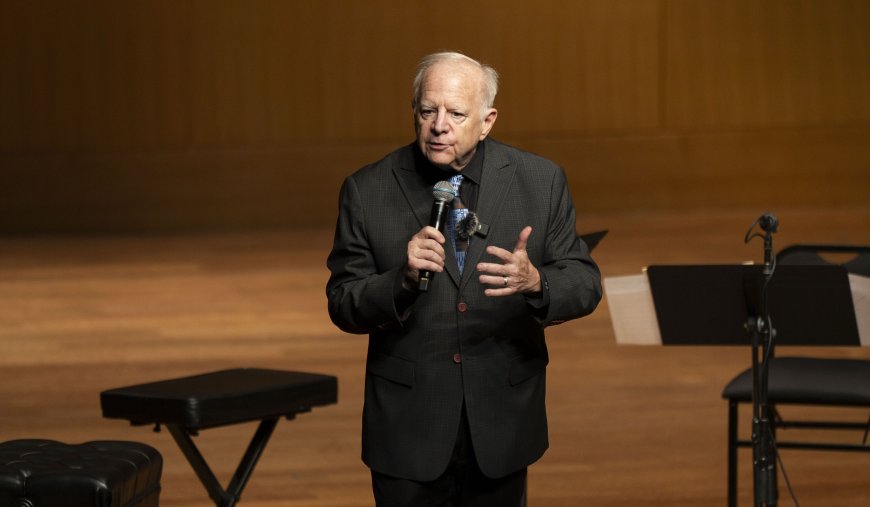
The founders of the original quartet, the husband-and-wife team of Felix Slatkin and Eleanor Aller, had demanding day jobs: concertmaster of the 20th Century Fox Studio Orchestra and principal cellist at Warner Bros., respectively. In the evenings, the couple moonlighted as chamber musicians and raised their family.
Leonard Slatkin, conductor laureate of the St. Louis Symphony Orchestra, was on hand on Thursday and throughout the festival to provide juicy and humorous commentary about his parents and their fascinating lives. They chose the HSQ name, he said from the stage, to show that Hollywood could have “serious” culture and to pay tribute to the creative industry that supported them. They were also honoring the talents of film composers like Max Steiner, Miklós Rózsa, and Erich Wolfgang Korngold, creators of “the opera of its time.”
Slatkin’s eloquent Hollywood lore was a hard act to follow and almost stole the show. But the members of the NHSQ — first violinist Tereza Stanislav, second violinist Rafael Rishik, violist Robert Brophy, and cellist Andrew Shulman — rose confidently and sensitively to the occasion. Their refined, committed, and technically polished approach paid fitting homage to the rich and passionate performing style of their musical forebears.
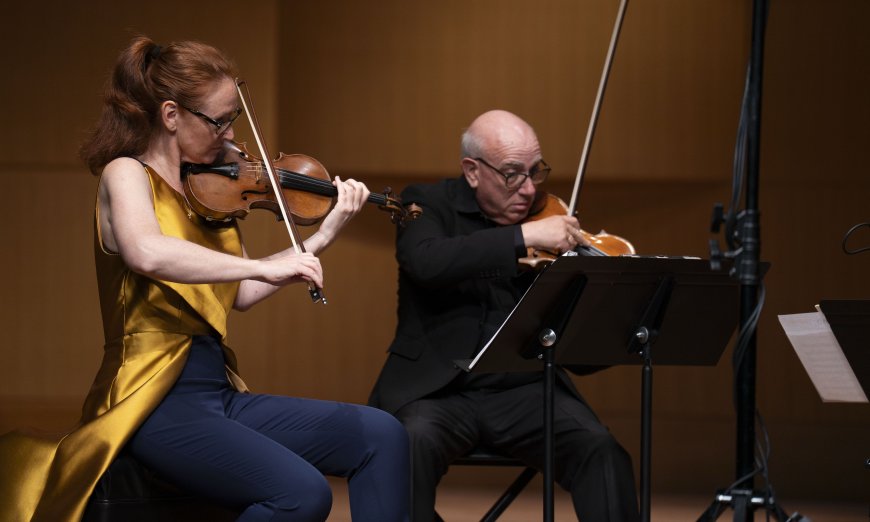
The evening’s three works, all written within a span of less than a decade, take different approaches to late Romanticism. Light and jaunty, Wolf’s short Italian Serenade (1887) floats a rustic song over strumming pizzicato accompaniment in bouncy 3/8 or 6/8 meter. Irony pokes through in the switches between major and minor tonalities and in the melodramatic run-up to the ending. The piquant and unexpected harmonic twists seem to prefigure the modernist tricks of Sergei Prokofiev and Igor Stravinsky.
Stanislav steered a pleasant and spirited interpretation that found the right rhythmic groove, although at times the players seemed somewhat detached from each other. Shulman provided strong support on the bottom, as he did throughout the evening, with a rich and flowing cello tone.
Borodin’s popular String Quartet No. 2 (1881) was one of the few works that the part-time composer managed to complete. The clear sonata-form structure of several of the movements, combined with passages of clever classical counterpoint, balance the limpid Romanticism of the “oriental” themes. Borodin loved the cello, and Shulman made the most of the beautiful moments the composer included for the instrument, especially the theme of the third-movement Nocturne, later recycled in the hit song “And This Is My Beloved” from the 1953 Broadway musical Kismet.
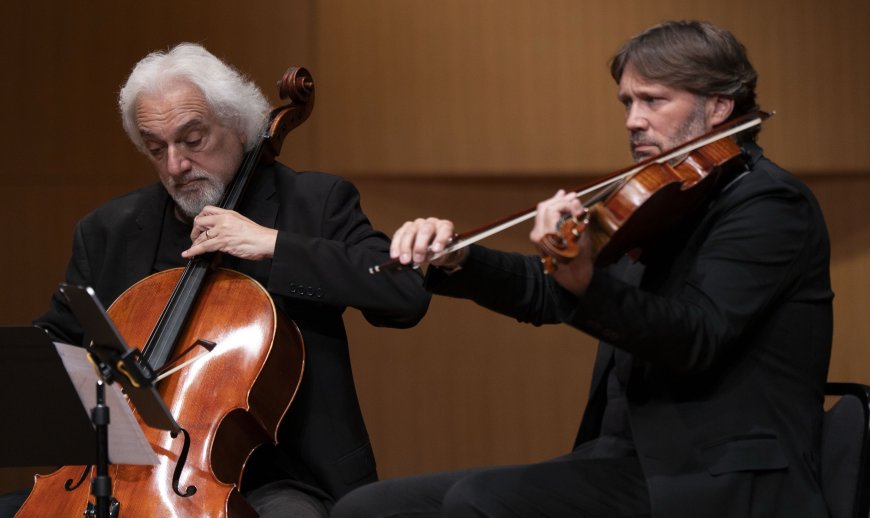
With his old friend Slatkin turning pages, Los Angeles favorite Thibaudet joined the string players in the second half for a dynamic reading of Franck’s turbulent and feverish Piano Quintet (1879). Thibaudet’s presence energized and tightened the ensemble. Like Franck’s warhorse Symphony in D Minor, the Piano Quintet uses a motto theme throughout, surrounded by lush chromatic harmony that becomes almost Wagnerian in its obsessive intensity.
Thibaudet knows his way around this kind of music and propelled a muscular performance of rapidly changing colors and moods that maximized the pathos without going over the cliff. In the few quieter moments, the members of the NHSQ provided breathing room in finely nuanced duets and trios. Judging by this sensuous quintet, pulsating with dramatic urgency, it seems a pity that Franck never wrote any operas.


